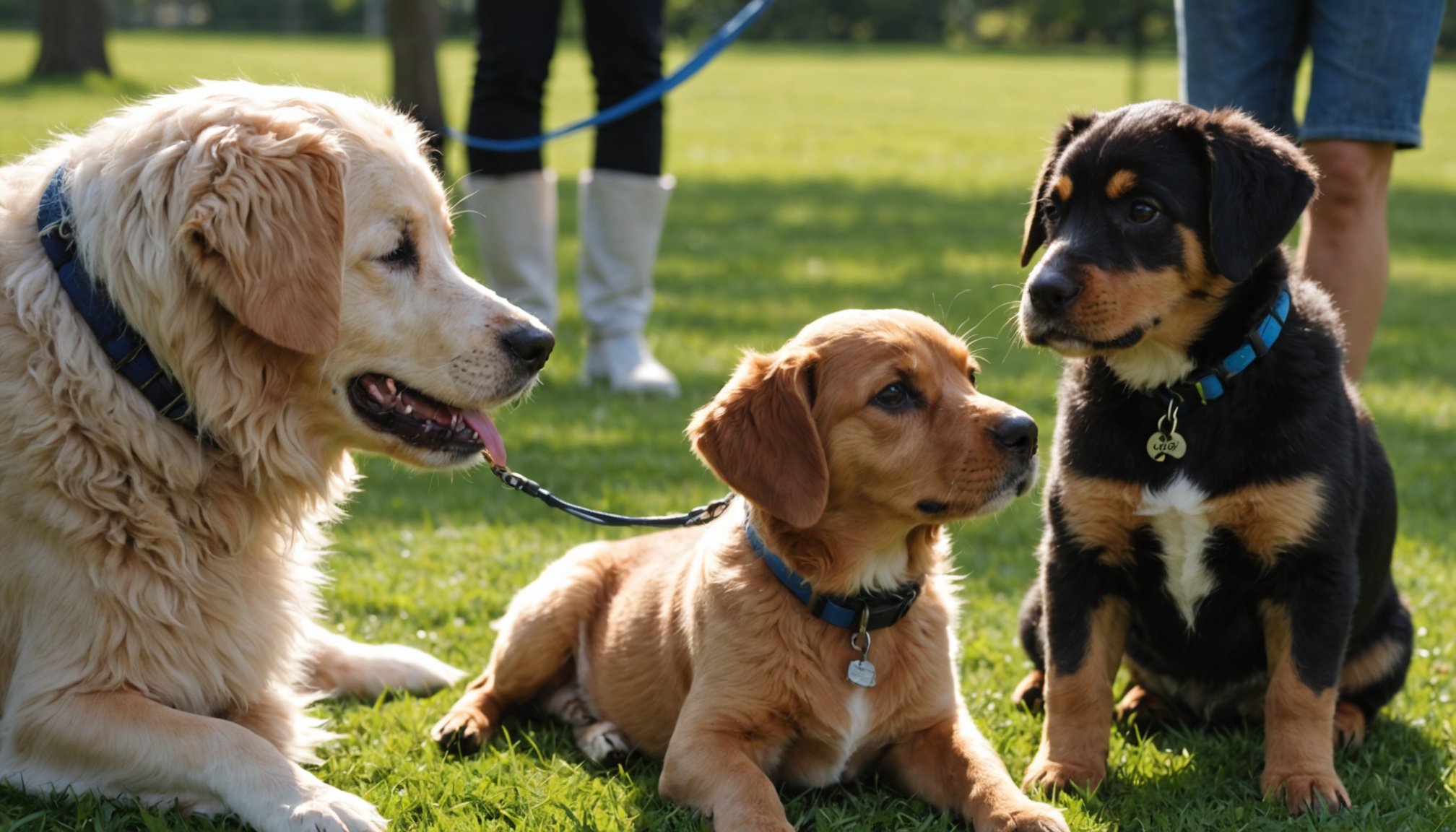Introducing your puppy to the world around them is a vital step in their development. Socialization is more than just teaching them to behave; it’s about ensuring they grow into a well-adjusted dog that can handle various interactions and environments. When puppies are not properly socialized, they may develop anxiety or aggressive behavior, which can affect their relationship with people and other dogs. This article aims to guide you through effective socialization techniques that ensure your puppy thrives in their new world.
The Foundations of Effective Puppy Socialization
Socializing puppies involves creating positive experiences that help them become comfortable with different stimuli. The process is about exposure, but it needs to be managed carefully to prevent overwhelming the puppy.
Additional reading : Effective Tips for Identifying and Safely Removing Foxtails from Your Brittany Spaniel”s Ears
Early Socialization is Key
Puppies are most receptive to new experiences between 3 to 14 weeks of age. This is the ideal period to introduce them to a variety of people, pets, and environments. During this time, they form associations that can last a lifetime. Positive exposure during this period is crucial because it helps them build confidence.
Creating Positive Experiences
To socialize your puppy effectively, ensure that each interaction is positive. Use treats, praise, and playtime to encourage good behavior. Socializing your puppy should be a fun activity, not a stressful one. Always be attentive to their body language to gauge their comfort level and stop if they show signs of stress or fear.
In the same genre : Helping your flat-coated retriever cope with the loss of a beloved companion: key tips and strategies for healing
Gradual Exposure to New Environments
When introducing your puppy to new environments, start small. Take them to quiet parks before heading to bustling dog parks or busy city streets. Gradually increasing environmental complexity helps them adapt without feeling overwhelmed. This gradual exposure is crucial in building their confidence and adaptability.
Encourage Interactions with Other Dogs
Interact your puppy with other well-behaved dogs. This helps them learn canine social cues and develop appropriate play and interaction skills. Supervised playdates, especially with dogs that have a gentle temperament, are ideal. Always monitor these interactions to ensure they remain positive and safe.
Socializing Your Puppy with People
Puppies need to be comfortable around people of all ages. This includes family members, friends, and strangers. Successful socialization with humans ensures they grow into friendly and approachable dogs.
Introducing Strangers
When introducing your puppy to strangers, allow them to approach at their own pace. Encourage visitors to kneel down to appear less intimidating and offer a treat to create a positive association. This way, the puppy learns that new people are not a threat but a source of enjoyable experiences.
Family and Friends Interaction
Encourage family members and friends to interact with the puppy regularly. This consistent exposure helps the puppy become accustomed to different people and their behaviors. Each interaction should be positive and calm, ensuring the puppy feels comfortable and secure.
Engaging with Children
Children can be more unpredictable than adults, so it’s crucial to socialize your puppy with them under supervision. Teach children to approach puppies gently and to allow the puppy to dictate the pace of interaction. This helps the puppy learn to be calm and positive around children.
Variety in Interaction
Introduce your puppy to people with different appearances and voices, including those wearing hats, sunglasses, or carrying bags. This variety helps the puppy learn that despite differences, all people can be potential friends.
Building Confidence Through Routine and Training
Confidence-building is a core aspect of socialization. Establishing routines and engaging in consistent training can significantly help your puppy adapt to new situations.
Establishing a Routine
Puppies thrive on routine as it provides a sense of security and predictability. Regular feeding times, exercise, and socialization schedules build a stable environment where they feel safe to explore. Consistent routines help them anticipate activities and reduce anxiety.
Training for Socialization Success
Training should focus on basic commands such as “sit,” “stay,” and “come.” These commands not only instill discipline but also facilitate positive interactions during socialization. Training sessions should be short, engaging, and rewarding, making them enjoyable for both you and your puppy.
Confidence through Play
Play is an excellent tool for socializing and building confidence. Toys that challenge your puppy’s mind, such as puzzle feeders, encourage them to use their instincts and build problem-solving skills. Playtime with other dogs also helps reinforce their learning and adaptation.
Handling and Grooming
Regular handling and grooming sessions can help your puppy become accustomed to being touched in various ways. This is especially important for visits to the vet or groomer. Practice touching their paws, ears, and tail gently, rewarding them with treats and praise to make these experiences positive.
Troubleshooting Socialization Challenges
Socialization can be challenging, and not all puppies respond the same way. Understanding how to navigate these challenges effectively ensures positive outcomes.
Recognizing Signs of Stress
Understanding your puppy’s body language is crucial. Signs of stress include cowering, tail tucking, or excessive yawning. If your puppy displays these behaviors, remove them from the situation and comfort them. It’s important to proceed at a pace they’re comfortable with.
Addressing Fear and Anxiety
Sometimes puppies may develop fears from past negative experiences. Counter-conditioning can help. This involves gradually exposing them to the fear source while providing rewards to create a new positive association. Patience and consistency are key in overcoming these hurdles.
Seeking Professional Help
If socialization proves excessively challenging, consider seeking help from a professional trainer or behaviorist. They can offer personalized strategies tailored to your puppy’s needs, ensuring they receive the best start in life.
Patience and Perseverance
Socialization is not instantaneous; it requires time and dedication. Celebrate small victories and remain patient throughout the process. Every positive experience contributes to your puppy’s growth into a well-adjusted dog.
Socializing your puppy is an ongoing journey that extends beyond their early months. Each interaction and experience shapes their personality and behavior, influencing how they navigate the world as adult dogs. By providing positive experiences and maintaining consistent training and socialization practices, you pave the way for a harmonious and fulfilling relationship with your pet. Your efforts ensure that your puppy not only thrives in their environment but also becomes a source of joy and companionship for those around them.











